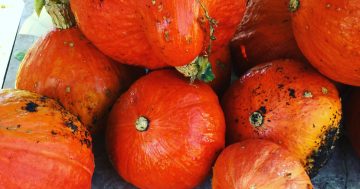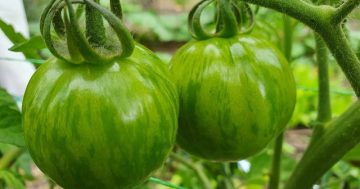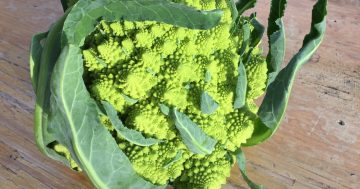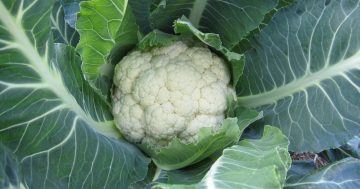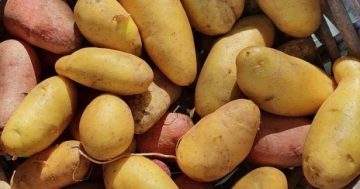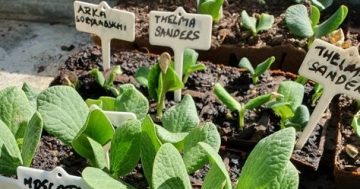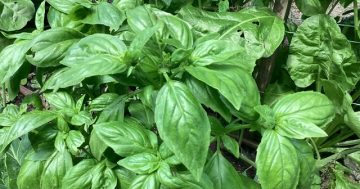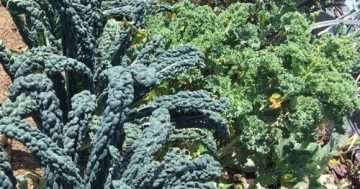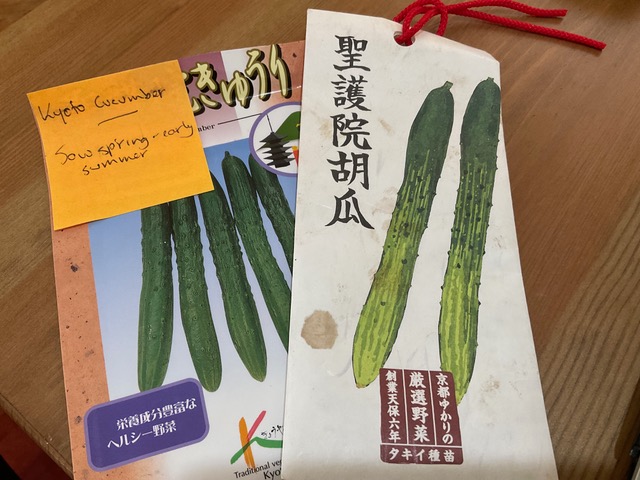
Japanese cucumber varieties are perfect for salads and stir-fries. Photo: Supplied.
Wandering through our large cold climate kitchen garden this time of year, I can’t help thinking about pumpkins: the lush, tangled greenery of the pumpkin vine and broad leaves taking over bare garden spaces with the magic fruit of the vine hiding underneath.
Pumpkins are another great pantry staple that can help feed your household from March right through to September. They are not difficult to grow, only needing lots of well manured and compost-rich soil, liberal amounts of full sun, water and a ph between 5.5 and 7.
You can start raising your pumpkin seeds from October for planting in November. Use a hot box or an indoor space with light and warmth to germinate your seeds.
One of life’s great mysteries is that there are over 70 types of pumpkin in the known universe, but only three or four types ever make it into the supermarket. Why is that? Why are Butternut, Jap/Kent and Jarrahdale often the only pumpkins you can get?
If you have a hot box or a warm indoor space, there are other vegetables you can start as seed now that will be ready to plant out in late November or early December. Sweet corn is a great choice. There can’t be anyone who doesn’t love eating freshly picked corn on the cob.
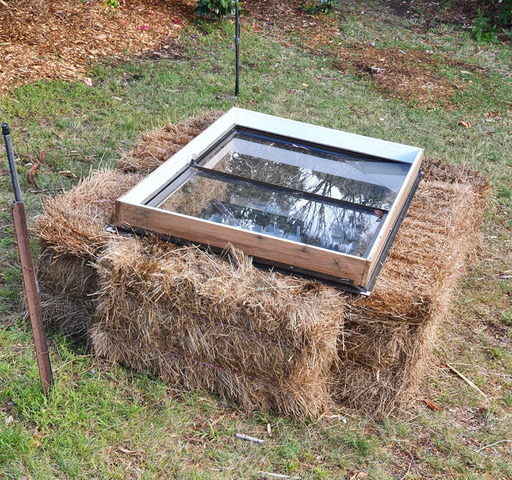
A hotbox can be manufactured with a window and hay bales. Photo: Supplied.
Cucumber is another one to start now. Plant these together in your garden and let the cucumber grow around the corn stalk. We have been growing some Asian varieties of cucumber (Korean, Japanese and Chinese) which tend to be a little drier and crunchier than the classic Australian grown varieties and are great for salads and cooking.
Melons can also be started from seed in October. Several varieties have a shorter growing time than the hot climate fruit. The large football type watermelons take 90 to 120 days of good strong sunshine with no frosts to reach maturity. Cool and temperate climate varieties take 70 to 90 Days. This means in cold climate NSW, you can just fit them in between the November and April frosts!
We have made a hotbox out of bales of pasture hay and an old window and placed it in the sunniest spot in the garden. The windows were throwaways from the neighbourhood and the bales were very cheap, direct from a farmer in the area because they were last year’s.
And yes, you can fit a few bales in a sedan or hatchback but use an old tarp to line the back seat and boot or you will be stuck with a big car cleaning job.
Potting mix will be required (or you can make your own), and you will need seed growing containers of some sort. Plant three pumpkin or cucumber seeds together in each seed raising pot or container, keep the two strongest seedlings and plant out as one.
A hot box is great to start pumpkin, cucumber, corn, beans and anything else you want to plant out over the next few months. Give seeds a soak in a seaweed-based complete liquid fertiliser for a boost of nutrients to help the sprouting seeds when planting.
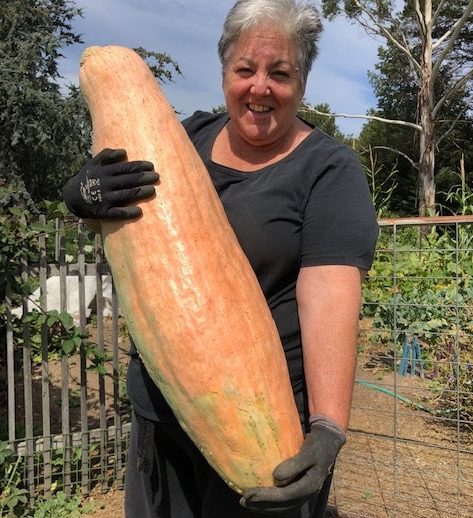
Helen with a spectacularly large pumpkin. Photo: Supplied.
There are lots of varieties of pumpkin that will add a bit of a thrill to your Autumn eating. But, when growing in smaller spaces, the varieties need to be from the same group. This minimises the chance of cross-pollination interfering with seed integrity. If you save seeds, you want them to be true to their variety.
Pumpkins are a very sexy veg and pollinate with abandon.
Sticking to the Cucurbita maxima group, for example, means you can enjoy:
- Buttercup – lovely and sweet for the most delicious soup
- Marina Di Chioggia – Italian and the most flavorful pumpkin we have ever eaten
- Golden Nugget – a space saver bush pumpkin for those with a balcony or small yard, and
- Pink Banana Jumbo – a large rambling pumpkin with a lovely flavour that holds its shape very well in a curry, stew or filo pastry pie.
Cold climate varieties include Sweet Siberian and Cream of Saskatchewan. The Sweet Siberian is honey flavoured, just so different from the standard hot climate varieties. Our pick of cucumbers this season are definitely Japanese and Chinese. The Sooyow Nishiki or Suyu Long will do the job.
The final ingredient for success is the weather. These summer staple fruits and vegetables need a sunny summer with long bright days and not too cold at night. Let’s hope for the best and wait and see.
Happy vegetable growing!
Bronwyn Richards and Helen Lynch run Wynlen House Artisan Village Farm and Learning Centre, a small village organic market garden in Braidwood, NSW. Since 2006 they have grown and sold fresh vegetables, eggs, preserves and garlic, and teach others to do the same.












